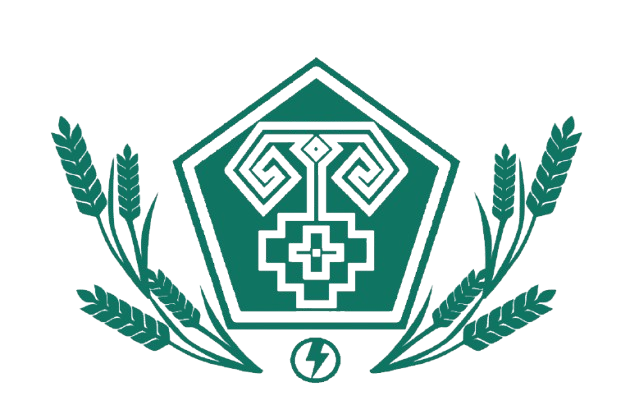Strecha: Difference between revisions
Slavic blin (talk | contribs) mNo edit summary |
Slavic blin (talk | contribs) mNo edit summary |
||
| Line 23: | Line 23: | ||
== Integration into the [[Korych]] 2146-2149 == |
== Integration into the [[Korych]] 2146-2149 == |
||
| − | Militant elements in the new commonwealth hoped to build a new hedgemoney with Sahrland-Bastia as a new great power, able to drive a wedge between [[Phoenia]] and [[Zokesia]], while building upon the legacy of [[Nemqurpolitik]] and the new ideals of [[Svobodism]]. This movement was short lived and died with the hysteria of 2160 but they succeeded at pressuring parliament into creating the [[Korych]], which would be treated as a paramilitary organization able to be sent abroad without invoking wartime measures. With the Republican Guard gutted manpower had to be sourced from other areas. Since prisoner of war labour was already being used to rebuild [[Klensagrad]] and [[Slovale]] the militants successfully pushed through the approval of penal conscription into the Korych. |
+ | Militant elements in the new commonwealth hoped to build a new hedgemoney with Sahrland-Bastia as a new great power, able to drive a wedge between [[Phoenia]] and [[Zokesia]], while building upon the legacy of [[Nemqurpolitik]] and the new ideals of [[Svobodism]]. This movement was short lived and died with the hysteria of 2160 but they succeeded at pressuring parliament into creating the [[Korych]], which would be treated as a paramilitary organization able to be sent abroad without invoking wartime measures. With the Republican Guard gutted manpower had to be sourced from other areas. Since prisoner of war labour was already being used to rebuild [[Klensagrad]] and [[Slovale]] the militants successfully pushed through the approval of penal conscription into the Korych. Captured former Strecha members were quickly funneled into the Korych for their combat experience. |
Revision as of 18:35, 11 August 2024
|
Strecha
|
|||||
|---|---|---|---|---|---|
 |
|||||
| [strechalogo] | |||||
| Industry | Paramilitary Organization | ||||
| Location | |||||
| Headquaters | Slovale | ||||
| Area Served | Sahr | ||||
| CEO | Tekina Sinclair | ||||
The Strecha was a Sahren paramilitary organization created as a security force for the National Salvation Party in 2138. They answered directly to the National Salvation League but in practice followed Gerbin Ostalost directly, ensuring with force his power over the party and general citzenry of Sahr.
origins
The Strecha was formed for security of the NSP in 2138. It was also used to intimidate vocal enemies of the NSP and was planned to intimidate voters at the polling stations to vote for the NSP in parliamentary elections when parliament was put back into session. The 2139 coup dashed all hopes of using the parliament to advance the NSP, causing the National Salvation Party and all it's associated organizations to prepare for a revolution in a critical time of instability.
Sahren Civil War 2144-2146
The Strecha were the first NSP organization to begin open hostilities on the 16th of kamprazdnoir. One out of the three Strecha divisions were committed to the operation to seize Slovale, cutting off the Junta force and seizing the city before being themselves surrounded by Labour party forces. Due to high casualties the division in Slovale was downgraded to a brigade and assigned directly to the National Salvation army.
Vagani Campaign 2146-2153
The Vagani Campaign saw a gradual decline of the united front, eventually forcing a Republican withdrawal back into Sahrland but at such high cost that a second civil war was impossible to begin. The Strecha found their numbers declining, and refilling it were hastily promoted recruits or tribesmen who often barely spoke a word of Egercian. By 2152 the Strecha was no longer the seasoned asymmetric fighting force it used to be.
Integration into the Korych 2146-2149
Militant elements in the new commonwealth hoped to build a new hedgemoney with Sahrland-Bastia as a new great power, able to drive a wedge between Phoenia and Zokesia, while building upon the legacy of Nemqurpolitik and the new ideals of Svobodism. This movement was short lived and died with the hysteria of 2160 but they succeeded at pressuring parliament into creating the Korych, which would be treated as a paramilitary organization able to be sent abroad without invoking wartime measures. With the Republican Guard gutted manpower had to be sourced from other areas. Since prisoner of war labour was already being used to rebuild Klensagrad and Slovale the militants successfully pushed through the approval of penal conscription into the Korych. Captured former Strecha members were quickly funneled into the Korych for their combat experience.